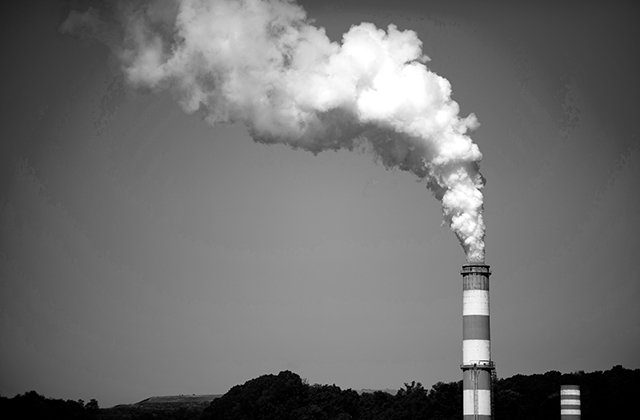While California Governor Jerry Brown and other elected officials like the "Climate Mayors" are heralded for their work to tackle pollution, a new report argues that the policies they implement can actually exacerbate the harm inflicted on communities of lower-income people of color.
The report, titled "Paying to Pollute: The Environmental Injustice of Pollution Trading," was released yesterday (November 13) by environmental advocacy organizations Food & Water Watch and Greenaction for Health and Environmental Justice. It examines what happens when water and air polluters build facilities in lower-income communities of color, then opt to pay their way out of reducing emissions.
"Paying to Pollute" focuses primarily on pollution trading, programs in which industries can buy pollutant credits in lieu of reducing emissions. They purchase the credits from other pulluters who are more willing—or better equipped—to lower their emissions, thereby swapping responsibility for money. The report finds that market-based pollution credit programs are detrimental to laws like the Clean Air Act and the Clean Water Act, making them ineffective in protecting the people who need them most.
“Pollution trading fundamentally precludes the democratic engagement of vulnerable communities by placing the decision to pollute solely in the hands of industry,” reads the report. It continues:
The shift to market-based environmental regulation has daunting environmental justice implications for minority and lower-income communities. Companies trade pollution credits with little or no public input. This lack of transparency can concentrate emissions and exacerbate the persistent inequitable health and economic burdens in disadvantaged communities. Unlike the regulatory process, pollution trading leaves almost no room for political or legal recourse.
These programs contribute to concentrations of facilites where toxic materials are dumped. And, according to the report, these sites are often located in close proximity to neighborhoods inhabited by Black or Latinx residents.
“Pollution trading schemes like cap-and-trade unjustly burden lower-income communities of color. This is a fact,” Wenonah Hauter, executive director of Food & Water Watch, said in a statement. “So many of us are rightfully desperate for solutions to our climate crisis, but market-based policies won’t save us. The only real way to significantly reduce carbon pollution is to stop producing it. We must move off fossil fuels now.”
The report proposes five recommendations to curb the harmful consequences of pollution trading. They include more general solutions, such as Congress requiring the Environmental Protection Agency to enforce environmental civil rights violations through punishable actions, as well as ones specifically focused on pollution trading. “States must halt market-based programs and restore, improve and expand regulatory pollution controls,” the report reads.
Read the full report here.
